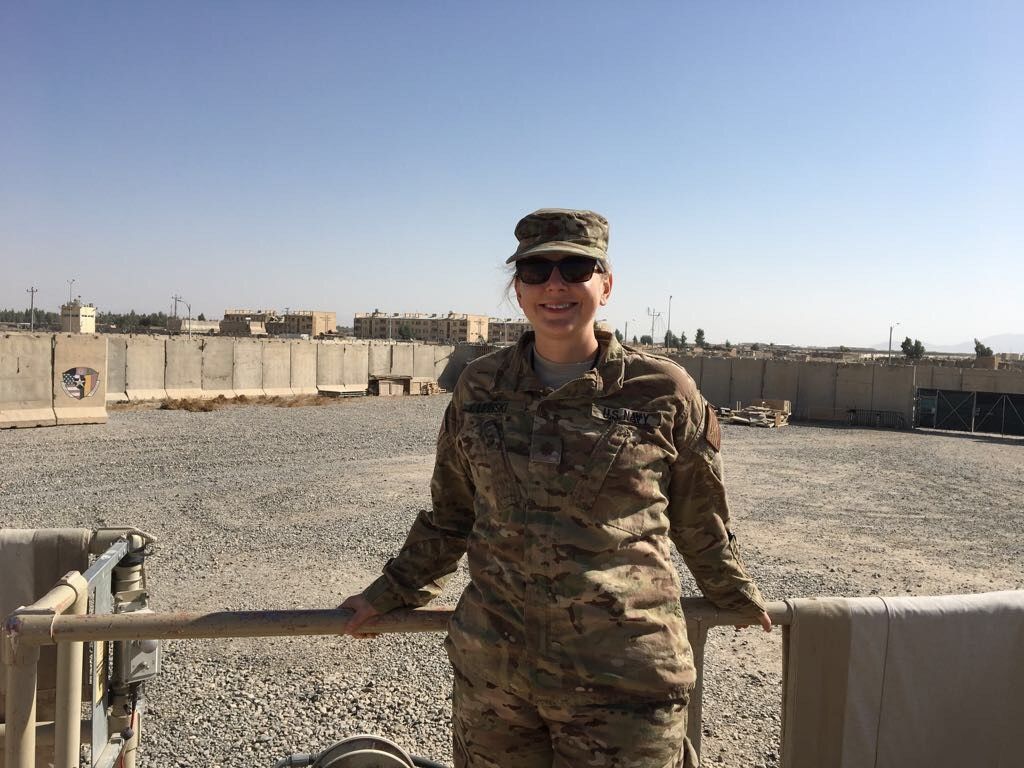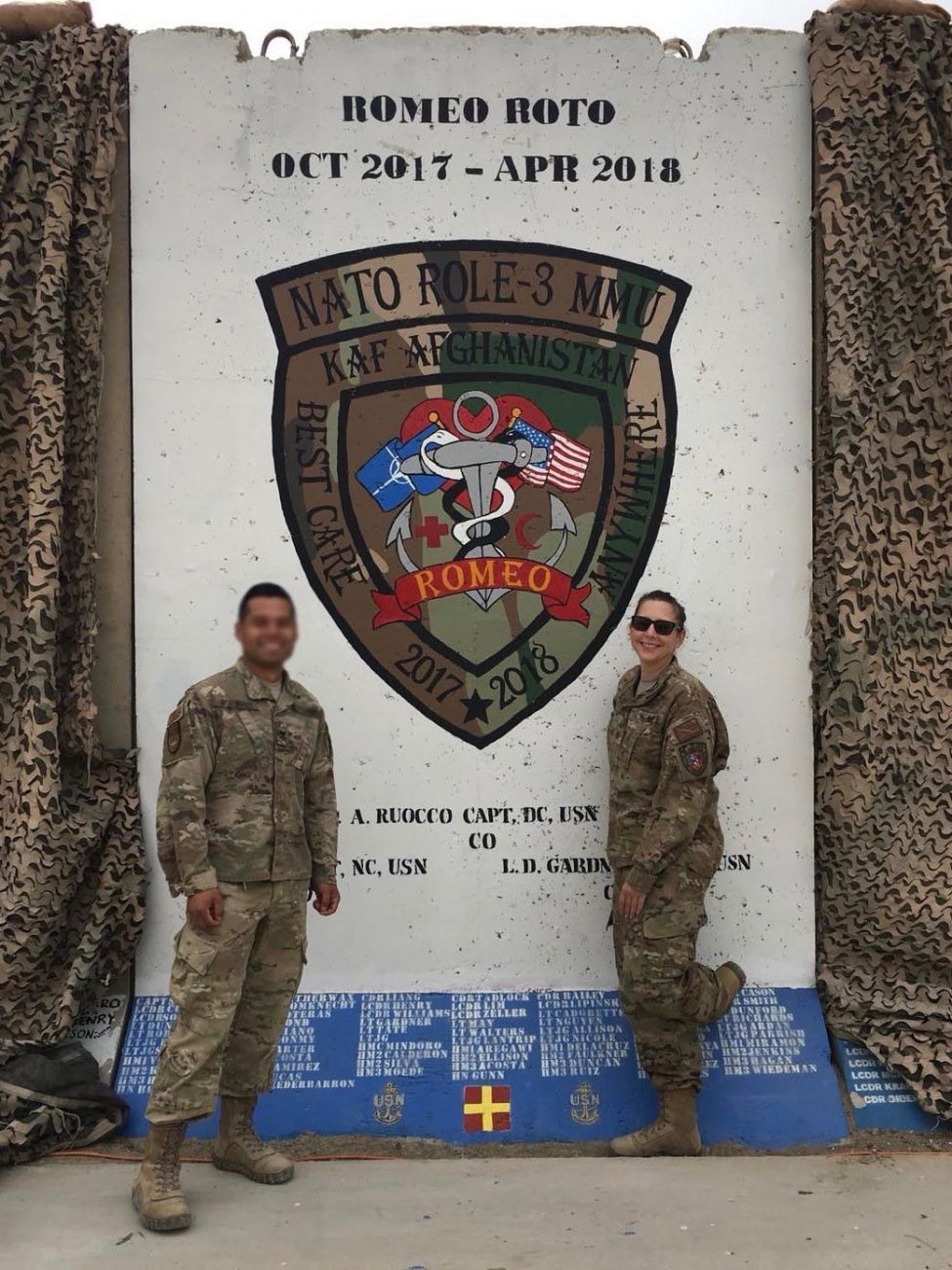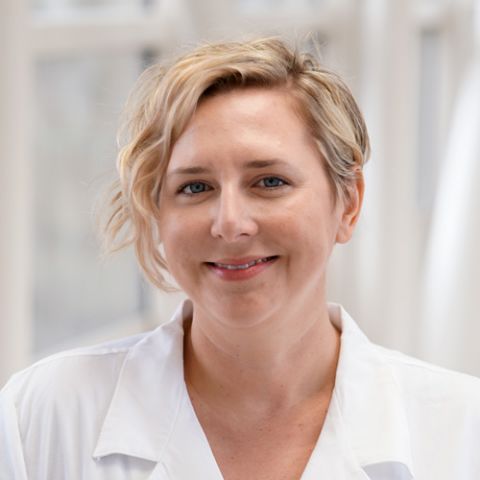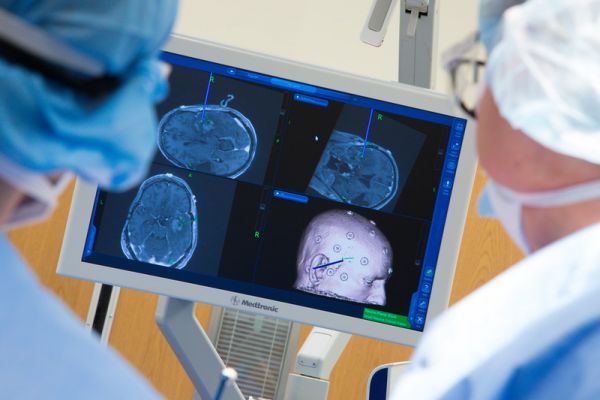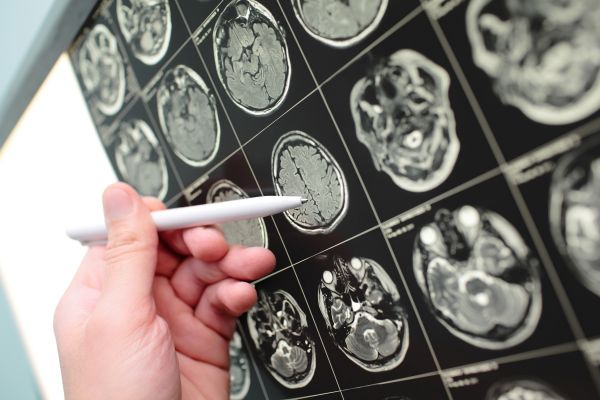This month we take time to recognize and thank our military veterans for keeping us safe both at home and abroad. To mark Veterans Day, we sat down with neurosurgeon Lindsay Lipinski, MD, FAANS, who joined Roswell Park's Department of Neurosurgery last summer after completing her service in the U.S. Navy. Dr. Lipinski served both in the States and overseas, earning the Navy Achievement Medal and Marine Corps Commendation Medal for her service. We spoke to her about her experience.
What made you want to want to serve?
My family has a tradition of military service. My dad was a Seabee [United States Naval Construction Battalions] and was deployed during Operation Desert Storm/Shield. My grandfather was a gunner's mate in World War II and was thrown from his ship during the Battle of Leyte Gulf — the largest naval battle of the war — and rescued from the water hours later. My uncles served in the Air Force and Army.
Growing up, hearing stories and seeing photos of faraway places, admiring the uniforms, and sensing the camaraderie and pride, I knew I wanted to serve in the military at some point in my life. It may sound cliché, but I felt and continue to feel grateful to have the freedom to pursue education, to speak my mind and to shape the future. I was never pressured, but from a pretty young age I felt an obligation to repay this gratitude to my country. I finally had the opportunity to act when I decided to go to medical school.
Why the Navy over other military branches?
That one's easy! Besides the fact that both my father and grandfather were in the Navy, the bases are in great locations and always near the water.
Where did you serve?
I spent a total of four years in the Reserves and four years on active duty. While I was on active duty, I was stationed at Naval Medical Center Portsmouth in Virginia. We served a large Air Force, Army, Navy and Coast Guard population in the area, and also provided care for Marines at Camp Lejeune in Jacksonville, North Carolina. I also spent time at the Marine base in Okinawa, Japan, and deployed to Kandahar, Afghanistan, in support of Operation Enduring Freedom.
What was the experience like?
I had an amazing experience in the Navy. I was pushed out of my comfort zone in many ways — carrying a weapon in a combat zone, practicing neurosurgery in an austere environment with limited equipment and supplies, and of course driving on the left side of the road in Japan! But I grew both personally and professionally. I got to work with amazing people, both patients and colleagues, and hear amazing stories and learn something new just about every day. The friends I made in the military will be lifelong friends.
How does working in a military hospital compare to a civilian hospital?
Overall, there are more similarities than differences. Obviously my patients at Roswell Park are a much different demographic than they were in the military, but both groups share a sense of gratitude and desire to get better. Sometimes I miss the order and structure of military medicine, but here I also appreciate being encouraged to be creative, seek unconventional solutions and build my practice on my own terms. Oh — and I don't have to wear a uniform or salute now, so that's nice!
How did you earn the Navy Achievement Medal and Marine Corps Commendation Medal?
I was awarded the NAM for serving as Department Head of Surgical Specialties at the NATO hospital at Kandahar Airfield. I was the sole neurosurgeon in the south of the country, and in that role I managed eight combat-related neurosurgical casualties during my deployment. I also helped to develop the Trauma Symposium with Afghan physician colleagues at the Kandahar Regional Military Hospital (the Southern Afghanistan Military Medical Society) in support of the Train, Advise, Assist Mission.
I was awarded the commendation as an "end of tour" award to acknowledge my service to the Naval Medical Center Portsmouth during my time there, including leadership roles in the Neurosurgery Department as well as subspecialty expertise on the Craniofacial Board and Critical Care Committee.
It is always a great honor to be recognized by leadership for hard work. But it is also humbling, as it’s a reminder that there are many sailors, Marines, airmen and soldiers who sacrificed much more in service to their country.
How does your military service translate into what you do here at Roswell Park?
Military service teaches flexibility, poise, discipline, resilience and humility. I think those are qualities that are advantageous across the board, but particularly in medicine. I call on most of those qualities every day to offer my patients the most compassionate, thoughtful and thorough care I possibly can.
Never miss another Cancer Talk blog!
Sign up to receive our monthly Cancer Talk e-newsletter.
Sign up!